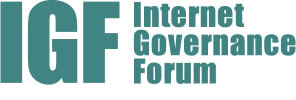◎ 제안 취지 및 주요 쟁점
Today the Internet is an essential tool for everyday life. Besides being the door to global knowledge and the global market, more and more transactions are becoming digital and conducted online. This digitization rate has become even faster during the COVID-19pandemic.
However, not everyone fully enjoys the benefits of the Internet yet. Traditionally, the Internet has been using English as a primary language. Those who cannot use English well have more challenges using the Internet. Website content is now available in multiple languages, including Korean, but key infrastructure such as domain names or email addresses are still mainly in English.
To enable a multilingual Internet, domain names should also be in local languages – these domain names are called Internationalized Domain Names (IDNs). Enabling IDNs requires community knowledge to define how to use a particular language script to accommodate usability requirements while mitigating security or stability risk. For example, how should Hangul character 뉘 (HANGUL SYLLABLE NWI) be used in domain names while considering the risk of confusion with Hanja character 爿 (CJK UNIFIED IDEOGRAPH-723F)? The Korean community has developed Korean Label Generation Rules for the root zone (Korean RZ-LGR) to address issue like this. The work has been done in consultation with relevant script communities and various multistakeholders locally.
Although Korean domain names are available today, the Internet ecosystem still needs to widely accept Korean domain names and email addresses. A study of websites globally shows that only about 11% of websites can accept email addresses in local languages, such as Chinese or Arabic. Another study on email servers shows that less than 10% of servers globally are configured to support such email addresses. As email is a key Internet application, the ICANN community also focuses on making Email Address Internationalization (EAI) widely accepted in the Internet ecosystem.
These are some of the efforts by the ICANN community under the Universal Acceptance (UA) project. This includes raising awareness and building capacity for those who develop and deploy end-user applications and systems to ensure UA support is provided for a multilingual Internet.
This session will involve Korean community members who work on the Korean Label Generation Rules (LGR) who will share their views on what the benefits of IDNs are for the Korean community, and share their experience conducting this LGR work. The session will also include an introduction to UA and an overview of how to enable EAI in email applications and systems.
The session’s objectives are to raise awareness of the current status of the use of Korean language as identifiers on the Internet, and to invite various stakeholders to join the UA effort to build an inclusive Internet together for the whole Korean community. The target audience includes policy makers, technology providers, technology administrators, and general Korean Internet users.
* 해당 워크숍은 동시통역이 진행됩니다.
* 패널의 의견은 그 단체 또는 소속의 의견이 아님을 알려드립니다.

